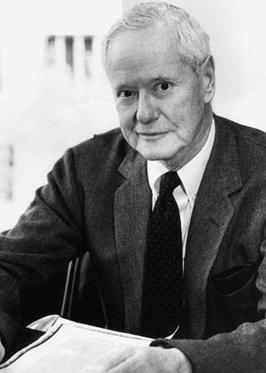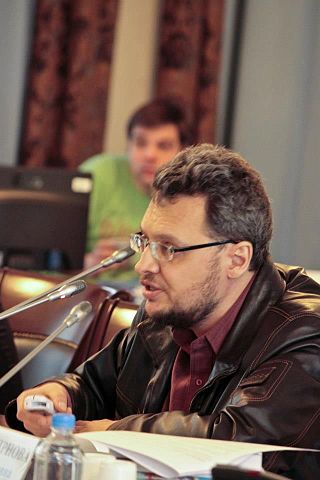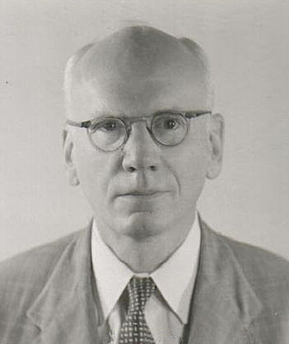Related Research Articles

Robert King Merton was an American sociologist who is considered a founding father of modern sociology, and a major contributor to the subfield of criminology. He served as the 47th President of the American Sociological Association. He spent most of his career teaching at Columbia University, where he attained the rank of University Professor. In 1994 he was awarded the National Medal of Science for his contributions to the field and for having founded the sociology of science.
Institutional economics focuses on understanding the role of the evolutionary process and the role of institutions in shaping economic behavior. Its original focus lay in Thorstein Veblen's instinct-oriented dichotomy between technology on the one side and the "ceremonial" sphere of society on the other. Its name and core elements trace back to a 1919 American Economic Review article by Walton H. Hamilton. Institutional economics emphasizes a broader study of institutions and views markets as a result of the complex interaction of these various institutions. The earlier tradition continues today as a leading heterodox approach to economics.
John Harry Goldthorpe is a British sociologist. He is an emeritus Fellow of Nuffield College, Oxford. His main research interests are in the fields of social stratification and mobility, and comparative macro-sociology. He also writes on methodological issues in relation to the integration of empirical, quantitative research and theory with a particular focus on issues of causation.
Gary Alan Fine is an American sociologist and author.
Richard Swedberg is a Swedish sociologist. He is currently Professor Emeritus at the Department of Sociology at Cornell University.
Charles B. Perrow was an emeritus professor of sociology at Yale University and visiting professor at Stanford University. He authored several books and many articles on organizations, and was primarily concerned with the impact of large organizations on society.

The sociology of law is often described as a sub-discipline of sociology or an interdisciplinary approach within legal studies. Some see sociology of law as belonging "necessarily" to the field of sociology, but others tend to consider it a field of research caught up between the disciplines of law and sociology. Still others regard it as neither a subdiscipline of sociology nor a branch of legal studies but as a field of research on its own right within the broader social science tradition. Accordingly, it may be described without reference to mainstream sociology as "the systematic, theoretically grounded, empirical study of law as a set of social practices or as an aspect or field of social experience". It has been seen as treating law and justice as fundamental institutions of the basic structure of society mediating "between political and economic interests, between culture and the normative order of society, establishing and maintaining interdependence, and constituting themselves as sources of consensus, coercion and social control".

Hans Joas is a German sociologist and social theorist.
Metapower is a concept of having control not simply of individuals, but of the social structures themselves. The idea has stemmed from work by sociologists such as Tom R. Burns and Peter Hall, the economist Thomas Baumgartner, as well as by political scientists such as James Rosenau and Stephen D. Krasner. Its study often uses the language of game theory since at some level, having meta-power over a group of people means that one can control the form of the game, thereby controlling the outcome.
Roger B. M. Cotterrell is the Anniversary Professor of Legal Theory at Queen Mary University of London and was made a fellow of the British Academy in 2005. Previously he was the Acting Head of the Department of Law (1989–90), Head of the Department of Law (1990-1), Professor of Legal Theory (1990–2005) and the Dean of the Faculty of Laws (1993-6) at Queen Mary and Westfield College, University of London.
Social rule system theory is an attempt to formally approach different kinds of social rule systems in a unified manner. Social rules systems include institutions such as norms, laws, regulations, taboos, customs, and a variety of related concepts and are important in the social sciences and humanities. Social rule system theory is fundamentally an institutionalist approach to the social sciences, both in its placing primacy on institutions and in its use of sets of rules to define concepts in social theory.
Walter Frederick Buckley was an American sociologist, and professor of sociology at the University of New Hampshire. Buckley was among the first to apply concepts from general systems theory based on the work of Bertalanffy to sociology

Bo Abraham Mendel Rothstein is a Swedish political scientist. He is a former Professor of Government and Public Policy at University of Oxford's Blavatnik School of Government.
Hilary Ann Rose is a British sociologist.
Thomas Martin Baumgartner is a Swiss economist, known for his pioneering work in social systems theory with Walter F. Buckley, Tom R. Burns and others.
Philippe R. DeVille is a Belgian economist, and Emeritus Professor of Economics at the University of Louvain, known for his contributions in the field of socioeconomic systems theory in collaboration with Tom R. Burns and others.
Helena Flam is a Polish-born sociologist and Professor of Sociology at the University of Leipzig, Germany, known for her work on social organization, emotions and social movements.

Joseph Rogers Hollingsworth was an American historian and sociologist and emeritus professor of history and sociology at the University of Wisconsin, known for his work on the governance of capitalist economies, especially the American economy.

Pavel (Vasil'evich) Romanov was a Russian sociologist, Doctor of Social Sciences, the professor of the HSE department of socio-economic systems and social politics; the editor-in-chief of the Journal of Social Policy Studies; the director of the Center for Social Policy and Gender Studies. He was one of the most authoritative Russian researchers whose topics include Sociology of organizations, social politics, sociology of professions and Ethnographic method in Sociology.

Morris Albert Copeland was a US economist who criticized 20th-century macroeconomic theory, and who contributed to the development of modern flow of funds theory.
References
- ↑ Joseph Rogers Hollingsworth, Karl H. Müller, Jane Hollingsworth (2005) Advancing Socio-Economics: An Institutionalist Perspective. p. 435
- 1 2 3 CURRICULUM VITAE: TOM R. BURNS at webb.uu.se. Accessed 26.05.2015.
- ↑ James Franklin (1976) The Rhode Island Almanack. Vol 3-4. p. 41
- ↑ Ruth Wodak, Paul Paul Anthony Chilton (2005) A New Agenda in (critical) Discourse Analysis: Theory, Methodology and Interdisciplinarity.. p.307
- ↑ Tom R. Burns, Thomas Martin Baumgartner, Philippe DeVille (1985) Man, Decisions, Society: : The Theory of Actor-system Dynamics for Social Scientists. Gordon and Breach Science Publishers.
- ↑ Bernd Kasemir (2003) Public Participation in Sustainability Science: A Handbook. p. vii